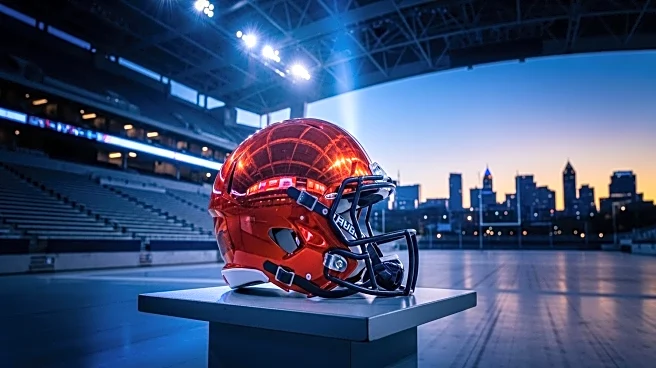What's Happening?
Auburn University has announced that its 2026 college football season opener against Baylor will be relocated to Atlanta's Mercedes-Benz Stadium. This decision is part of a strategic move to enhance Name, Image, and Likeness (NIL) opportunities for Auburn student-athletes. The game, originally scheduled to be played at Auburn's Jordan-Hare Stadium, will now be part of the Aflac Kickoff Game, facilitated by Peach Bowl, Inc. Through this partnership, Auburn athletes will gain access to marketing assets and promotional appearances, potentially generating around $5 million in NIL opportunities. Auburn's athletic director, John Cohen, emphasized the benefits of playing on a national stage, which will not only provide financial gains but also enhance the athletes' personal brands.
Why It's Important?
The relocation of the game underscores the growing importance of NIL opportunities in college sports, offering athletes new avenues for financial compensation. This move reflects a broader trend where universities are leveraging high-profile games to maximize exposure and financial benefits for their athletes. By playing in a neutral venue like Mercedes-Benz Stadium, Auburn aims to attract a larger audience and create significant marketing opportunities. This decision could set a precedent for other universities seeking to capitalize on NIL deals, potentially reshaping the landscape of college sports and athlete compensation.
What's Next?
Auburn's decision may prompt other universities to consider similar strategies, especially for high-profile games. The success of this initiative could lead to more neutral-site games designed to maximize NIL opportunities. Stakeholders, including athletes, sponsors, and universities, will likely monitor the financial outcomes closely. Additionally, Auburn's performance in upcoming games, including a challenging matchup against Georgia, will be crucial in maintaining momentum and interest in the relocated opener.
Beyond the Headlines
This development highlights the evolving dynamics of college sports, where financial incentives are increasingly tied to athlete branding and marketing. The ethical implications of such moves, including the commercialization of college sports and the impact on traditional home-game experiences, may spark debate among fans and stakeholders. Long-term, this could influence recruitment strategies and the overall structure of college athletic programs.











